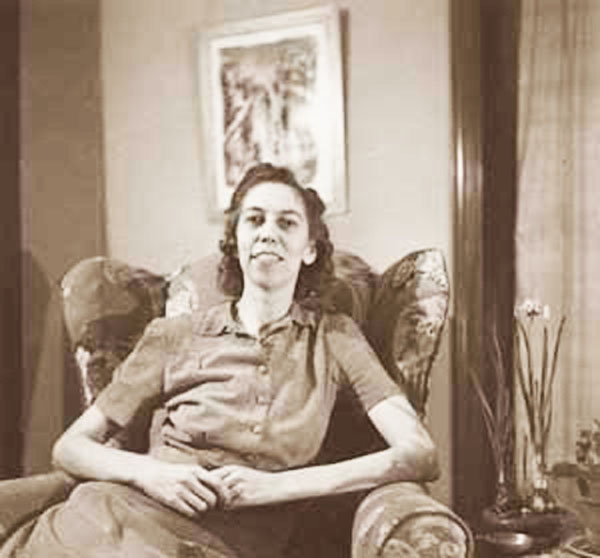For Christmas, I gave my granddaughter a compilation of Eudora Welty’s novels. She’s an avid reader and tore into the book as soon as she unwrapped it. The short stories, however, were not included. Yesterday, we drove to a large national bookstore chain ( aka quasi toy store and puzzle shop) to purchase one of Miss Welty’s finest Why I Live at the P.O. After a thorough search of the shelves, I couldn’t find any of Miss Welty’s works so I approached the young woman standing behind the customer service desk.
“May I help you?” she asked me. She was mid-twenties, long straight hair, Buddy Holly glasses, and a serious expression.
“Where are Eudora Welty’s books?” I inquired.
“Who?”
Eudora Welty,” I repeated.
“I don’t think I know her,” the young woman replied. My mental thermometer rose. I swallowed the word “idiot” and plowed ahead. “She’s a well-known Mississippi writer.” I continued.
“Oh?” Her eyebrows arched. “Let me check the computer.” As her hands flew over the info keyboard, she asked, “Welty?”
“Yes,” I answered. “Eudora Pulitzer Welty!” I didn’t shout, but I wanted to. My granddaughter wondered why her docile Nanny was on fire.
“Can you spell that?” she asked.
“W-E-L-T-Y,” I answered.
“Ummmm. I don’t see anything here,” the clerk said.
Luckily, the store manager saw the unfolding drama and intervened. “Yes, Eudora Welty,” she said. “What a great writer. I’ll look.” After a second computer search, the manager reported that the store no longer carried Miss Welty’s works.
My granddaughter was disappointed and so was I. “I’ll order it for you,” I said. Then I told her about one of the most wonderful experiences in my reading life.
I was young, not growing up young, but newly married young. A women’s club in Jackson invited Miss Welty to appear and read Why I Live at the P.O. A series of excellent English teachers had talked about her for years, along with other magical Mississippi names such as William Faulkner, Shelby Foote, and Walker Percy. My seventh-grade teacher danced around Tennessee Williams but was careful not to discuss the content of his work. Each teacher explained that our small, poor state was a workshop of artistic excellence and repository of brilliant writers. Fires, floods, tornadoes, or a resurgence of the black plague would not keep me from hearing Miss Welty. It happened one evening in October.
Our large meeting room lacked a stage, billowing curtains, or artful potted palms, but it was as full as an “open up the folding chairs” revival. In the center, Miss Welty sat in an overstuffed armchair holding her words in her lap. She was a thin, grey-haired woman with a soft voice and an expressive face. She thanked us for inviting her, then lifted her book and began to read. Within minutes, it was the Fourth of July in China Grove Mississippi. Sister and Stella Rondo were at it again, Papa Daddy had not shaved, and the elusive Mr. Whitaker remained elusive. What a delight! After Miss Welty finished her story, and Sister had established herself in the P.O., we rose as one, and gave her a rousing standing ovation.
As I was driving home, I began to wonder how this talented woman created such a fascinating story. Miss Welty was a photographer as well as a writer; both skills were beyond comparing. As she traveled the state as a WPA agent, the seeds of her stories walked right in front of her. Sometimes, they smiled and waved. Her razor-sharp mind cobbled those seeds into amazing stories. Just my guess, but it seems plausible. Bravo for one of Mississippi’s first lady of literature. I wish she was still living on Pinehurst Street, puttering in her garden and blessing us with a torrent of stories.
Another question, how does it happen here? After long years of reading, writing, and just looking around, I’m convinced Mississippi is a blend of fiction with an element of truth, as well as truth mixed with an element of fiction. Both aching to be told. It’s waking up early before it gets hot and the sky is a patchwork of pink and blue. It’s a blended aroma of sweet olive, honeysuckle and dirt mixed with pounding rain. It’s telling a tale from way back before anyone forgets. Here, we are story people. It’s innate, born in our blood, inherited from southern soil, and nourished by time. We have history too, sometimes joyful, sometimes accompanied by great pain. But ours.
Although Mississippi provides an abundance of inspiration, writing about it can be difficult. The task requires opening a vein, bleeding words, then spreading them out for all to see. It’s an exposure of the soul. As Miss Welty said, “No art ever came out by not risking your neck.” Fortunately, many our home-grown folks have taken that risk.
I pity the clerk in the bookstore. She’s missed a lot, and I truly hope she’s not going for a master’s degree in English literature. Maybe W-E-L-T-Y will remain in her brain, and she’ll take a risk too.







